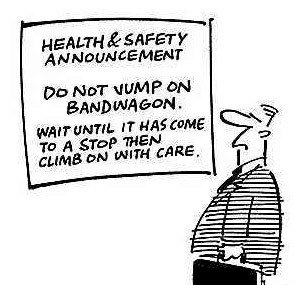Idioms. How we love them. But do we know the origins of some of our favourite sayings? Why do we tell someone to ‘break a leg’ when we wish them good luck? Why do we use imagery of being ‘in the same boat’ when someone is in a similar situation to you? And why do we turn over leaves when we want to start afresh? Allow The Definite Article to shed some light on these famous sayings.
‘In the same boat’
“This week’s reading is really difficult! How are you finding it?”
“Yeah I’m in the same boat, it’s really hard.”
Why a boat? Well, dating back all the way to the ancient Greeks, the idiom was often used to refer to the danger of passengers travelling in small boats – a very common use of transportation at the time. Over time, it has become used to describe situations not just on the sea and has been adapted to apply to pretty much any situation in which individuals are in a similar predicament.
‘Tables have turned’
Used to refer to a situation that has been reversed or altered, ‘tables have turned’ is a very common idiom in the English language today. The ‘tables’ refer to traditional board games, in particular backgammon. Each player would play from a specific side of the table, so by simply turning the board during the game players would be in a different position to what they were originally. A losing player could end up on a more advantageous side, and vice versa. Over time, the term began to move away from its board game origins and eventually was used to refer to a situation in which any individual’s ‘position’ was altered.
‘Jump on the bandwagon’
Be it on football, music or consumer goods, we’ve all heard the phrase ‘jump on the bandwagon’, meaning to latch onto an ever increasing popular fad or trend and typically used today in a derogatory sense. It all started, however, with a clown. In America in the 19th century, a man known as Dan Rice, a very popular clown and circus performer, became so famous he eventually ran for president in 1848. Using his various circus resources, he created a one-of-a-kind political campaign, including using the circus’ own bandwagon. Due to its popularity, many other politicians at the time wanted to ‘jump on the bandwagon’ themselves in order to rally their own support. Over time, the term developed a broader sense and became used for anyone associating themselves with a specific movement or trend.
‘Break a leg’
There are many different theories as to where the term ‘break a leg’ originated from. A simple theory is that it originated in theatre. Wishing someone good luck was considered to cause more harm than good, so by essentially wishing the opposite by saying ‘break a leg’, the performer would hopefully perform well. Other theories claim it originates from the ancient Greeks. During performances in Greek times, people would stomp their feet to show their appreciation rather than applaud. This leads to the rather grim image of performing so well that someone would stomp their feet hard enough to physically break it. Similarly, the stomping of chairs was a sign of appreciation in Elizabethan times, so the breaking of a chair leg would also signify a good performance. All these theories however all relate back to theatre, so it appears safe to assume that the term originated in the theatre at some point in time.
‘Goody two-shoes’
If you were ever called a goody two-shoes by someone as a kid, I bet they didn’t know that the term originates from a story published in 1765 and titled – believe it or not – Goody Two-Shoes. In a similar way to Cinderella, it involves a poor young girl who eventually meets a very nice rich person, is given a pair of wonderful shoes and lives happily ever after. How original. Towards the end of the story, the girl runs through her town showing off her new shoes, thus being nicknamed by the townsfolk as ‘goody two-shoes’. It is perhaps odd then that in modern times the term is used in a rather negative sense, compared to its usage at the time to deem someone virtuous and good, much like the girl in the tale.
‘Turn over a new leaf’
How many of you promised to turn over a new leaf at New Year’s? The phrase ‘turning over a new leaf’ can be traced back to the 16th century, when pages in a book, particularly in education, were known as leaves. By turning over to a blank page in a workbook, you were quite literally turning over a new leaf. By having a clean piece of paper to write on, you were also on a fresh page, ready to start anew, much like what the phrase now encapsulates.
So there you have it, the origins of some of English’s most popular idioms. Why don’t you go turn the tables and tell all your friends about your new found knowledge so you can all be in the same boat when it comes to idioms?

